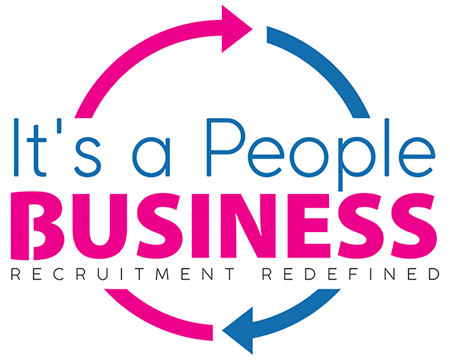
As the job market evolves, companies must also adapt their recruitment processes to remain competitive in attracting and retaining top talent. One way to achieve this is to leverage technology in recruitment, which offers many benefits such as reducing time-to-hire, improving candidate experience, and increasing recruiter efficiency. However, not all recruitment technology solutions are created equal, and it can be overwhelming for businesses to navigate the vast array of options available in the market. Therefore, in this blog post, we will discuss the best practices for leveraging technology in recruitment and highlight key considerations that businesses should keep in mind when implementing these solutions. We will also explore how technology can help address some common recruitment challenges, such as sourcing and screening candidates, managing candidate data, and measuring recruitment metrics. By following these best practices, businesses can optimise their recruitment process, benefit from cost savings, and ultimately, secure the best talent for their organisation.
1. Use of AI in resume screening
1. Use of AI in resume screening

As recruitment continues to evolve, keeping up with technology is crucial in gaining a competitive edge in the market. One such technology trend is the use of AI in resume screening. AI-enabled screening software automates the process of filtering and ranking resumes based on relevant skills and experience, saving recruiters significant time and resources. Additionally, AI algorithms can prevent human biases from affecting candidate selection, resulting in a more diverse and inclusive hiring process. However, it is important to note that this technology is not fool proof and should still be reviewed and monitored regularly by human recruiters to ensure a fair and effective process. Utilising AI in resume screening can streamline and improve the recruitment process, ultimately leading to better candidate matches and greater success in hiring top talent.
2. Video interviews to save time and resources
2. Video interviews to save time and resources

Read More: Mastering Talent Acquisition: Strategies and Best Practices for Recruiting Top Candidates
Keeping up with technology in recruitment can help businesses streamline their hiring processes and save time and resources. One such technology is video interviews. Conducting video interviews can eliminate the need for in-person interviews, which can be time-consuming and costly for both the company and candidate. Video interviews can be conducted at the convenience of both parties and can be recorded for later use. Additionally, companies can conduct interviews with candidates from anywhere in the world, saving on travel expenses. By leveraging video interview technology, businesses can more efficiently screen and evaluate candidates, ultimately leading to a more effective hiring process. It is important for businesses to continuously adapt and incorporate new technologies to remain competitive in the constantly evolving hiring landscape.
3. Utilising social media for job postings and candidate outreach
3. Utilising social media for job postings and candidate outreach

Keeping up with technology is essential for businesses to stay competitive in today's fast-paced recruitment landscape. Utilising Social media for job postings and candidate outreach has become one of the most popular ways for businesses to attract top talent. By leveraging the power of social media platforms such as LinkedIn, Twitter, and Facebook, recruiters can reach a wider audience and connect with potential candidates more easily than ever before. With its vast user base and sophisticated targeting options, LinkedIn has become the go-to platform for recruiters looking to connect with professionals across industries. Similarly, Twitter and Facebook offer opportunities to reach passive job seekers who may not be actively searching for job openings but would be interested in exploring new opportunities. By incorporating social media into your recruitment strategy, you can tap into a diverse pool of talented candidates and stay ahead of the competition.
Read More: The Future of Work: Predictions for Online Recruitment in the Next Decade
4. Online skills assessments for candidate evaluation
4. Online skills assessments for candidate evaluation

Keeping up with technology is essential for businesses to stay competitive in recruitment. One area where technology can be leveraged effectively is in evaluating candidate skills through online assessments. Online skills assessments can help recruiters and hiring managers to better identify candidates who have the necessary skills for a particular job, while also being able to quickly weed out those who do not meet the required criteria. Assessments can be customised to test for specific skills and competencies required for the role, ensuring that the evaluation is focused and comprehensive. Additionally, online assessments are cost-effective and can be administered quickly and efficiently, saving recruiters and hiring managers valuable time and resources. By incorporating online skills assessments in the recruitment process, businesses can improve the accuracy and efficiency of candidate evaluation, resulting in better hires and increased productivity.
5. Cloud-based applicant tracking systems for streamlined recruitment processes.
5. Cloud-based applicant tracking systems for streamlined recruitment processes.
Keeping up with technology is essential in today's competitive job market. One of the most significant advancements in recruitment technology is cloud-based applicant tracking systems. These systems streamline the recruitment process and offer a more efficient way of tracking applications, resumes, and potential candidates. With cloud-based systems, recruiters can easily manage job postings, resumes, and communications with candidates from a single platform. In addition, many of these systems include features like interview scheduling, candidate screening, and automated resume parsing. These features help recruiters save time and resources, allowing them to focus on other critical areas of the recruitment process, such as candidate engagement and assessing job fit. By leveraging the latest technology, businesses can stay ahead of their competition and attract top talent in a timely and efficient manner. Cloud-based applicant tracking systems are just one example of how technology can be leveraged to optimise the recruitment process.
Read More: Mastering the Main Stages of Any Recruitment Discussion: A Practical Guide for Employers
Conclusion
In conclusion, leveraging technology in recruitment can be extremely beneficial for businesses. The best practices discussed in this blog post, such as using online screening tools, video interviewing, and applicant tracking systems, can lead to improved efficiency, increased quality of candidates, and reduced time to hire. However, it's important for businesses to also maintain a human touch in the recruitment process to ensure a positive candidate experience. By utilising technology while maintaining a personal touch, businesses can achieve a successful and streamlined recruitment process.
As a call to action, we encourage you to reach out to It's a People.Business for expert guidance and support in implementing these best practices. Our team of recruitment professionals can help you develop a cost-effective and efficient hiring strategy that aligns with your business goals. Contact us today to learn more and take the first step towards building a strong and talented team for your small business.
Read More: The Benefits of Working with a Flat Fee Recruiter